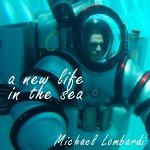 A wonderful Thanksgiving suprise was the arrival of my little Olive. It goes without saying that she was carefully inspected by her family for gills and webbed feet to see how much of her Dad was inherited right off. All kidding aside, among the most striking elements of Olive’s grand entrance was the realization that she had been living in an aquatic world for the last nine months…and using a higher technology than the rest of us have had the means to put together for our worldly exploits here on terra firma.
A wonderful Thanksgiving suprise was the arrival of my little Olive. It goes without saying that she was carefully inspected by her family for gills and webbed feet to see how much of her Dad was inherited right off. All kidding aside, among the most striking elements of Olive’s grand entrance was the realization that she had been living in an aquatic world for the last nine months…and using a higher technology than the rest of us have had the means to put together for our worldly exploits here on terra firma.
Now of course the idea of breathing oxygenated fluid rather than gas would have tremendous advantages for extreme environment exploration – be it for very deep diving, thus elimnating the many challenges stemming from gas pressure, or for space exploration, where the effects of g-forces could be reduced with fluid immersion. However, the science behind this is much less related to fetal ‘breathing’ than we might consider at face value.
Nevertheless, considering we are born from a liquid medium, there is much to learn as we consider an evolution back to a liquid medium. In the meantime, little Olive will have to wait patiently for 10 years or so til she can start sharing in my underwater explorations the more conventional way.

